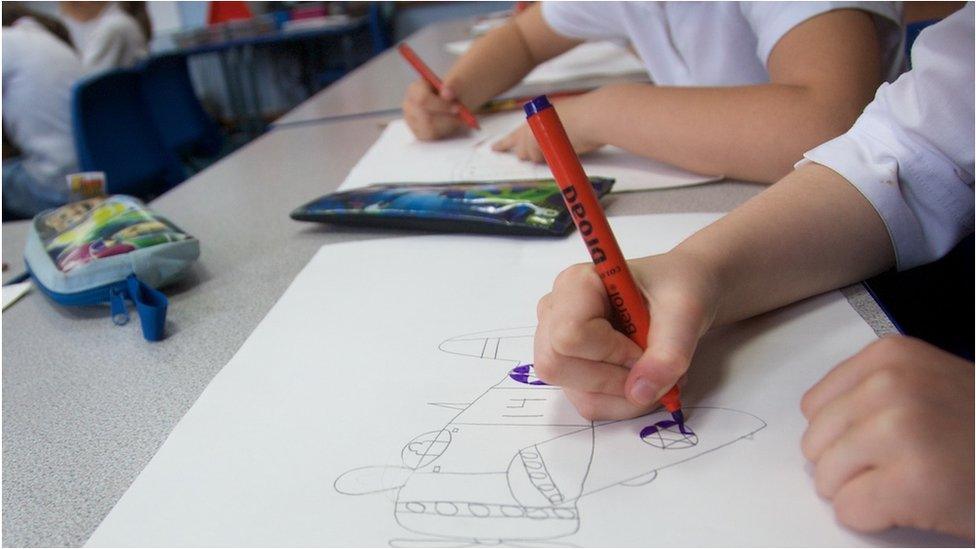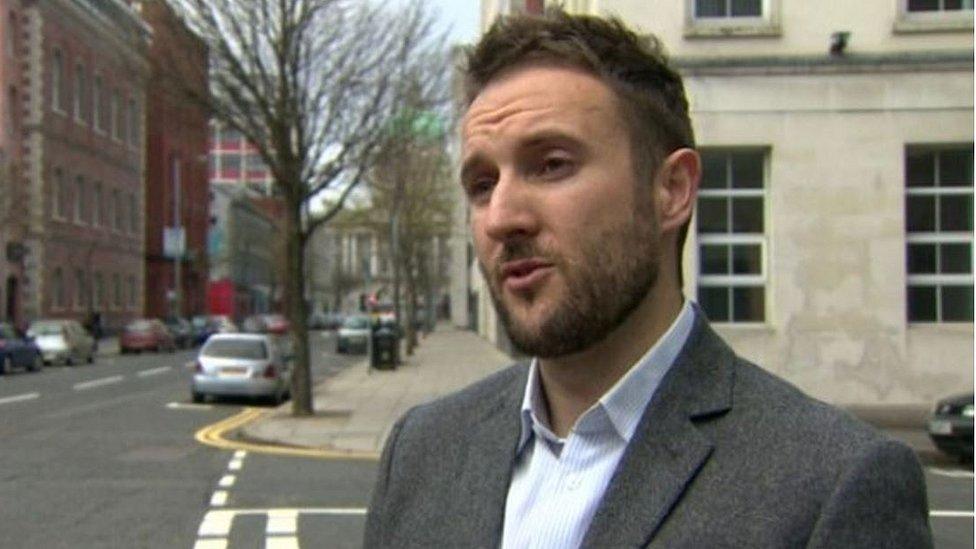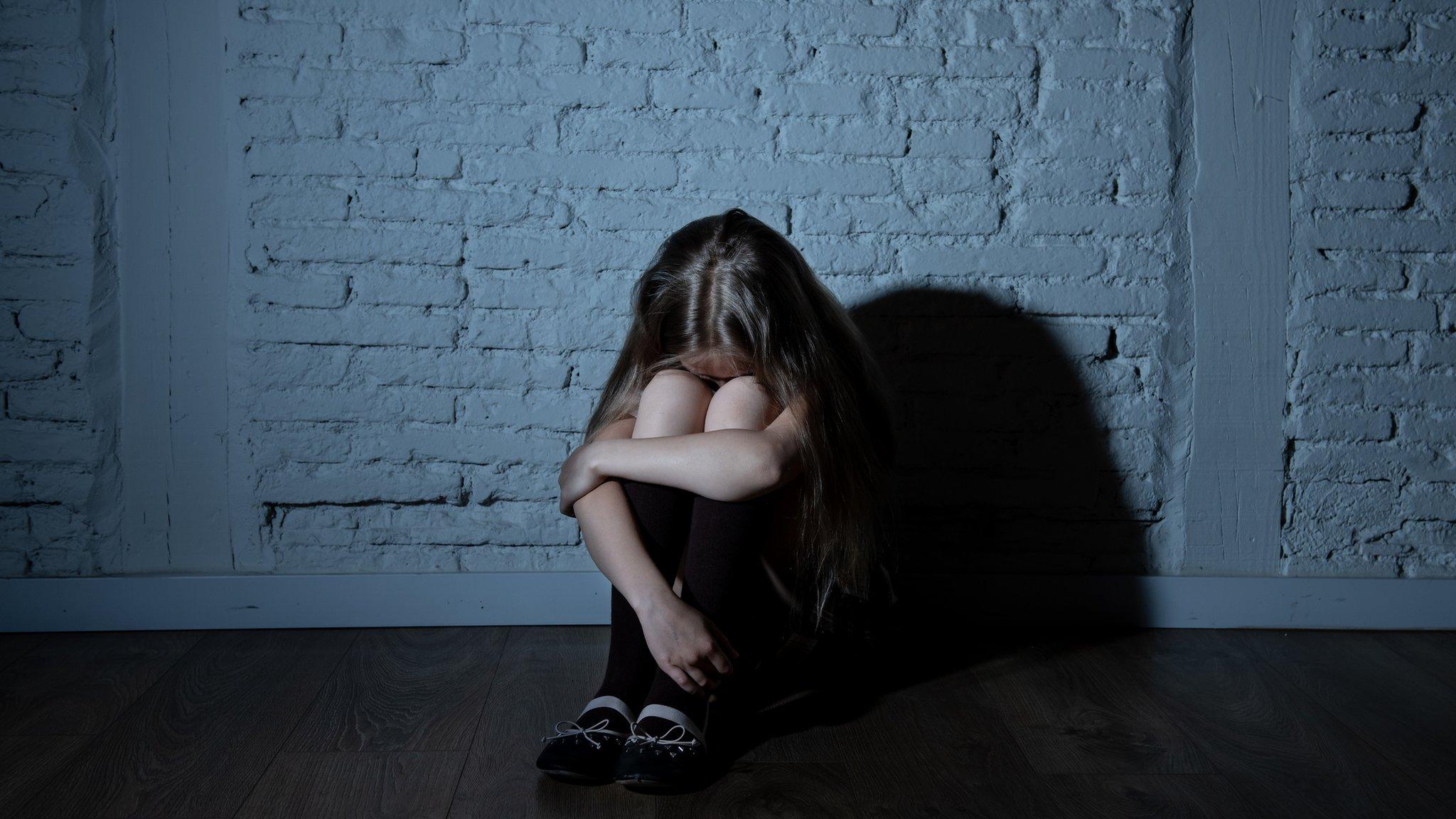School seclusion 'could have damaging effects'
- Published

The body representing social workers has called for stronger guidelines on when restraint and seclusion can be used in NI schools.
The British Association of Social Workers Northern Ireland (BASWNI) said the practices could have damaging effects on children.
The children's commissioner also previously called for stricter laws.
The Department of Education has said incidents involving the use of reasonable force must be recorded.
However, the recording of such incidents by schools is not a legal obligation.
The children's commissioner in Scotland has recently provided definitions of both practices.
Seclusion
Seclusion in schools is the "confinement of a child, without their consent, by shutting them alone in a room or other area which they are prevented from leaving".
It is distinct from "time out", which is a part of a planned programme of behaviour support.
Restraint is holding a pupil, or using mechanical restraints to prevent or restrict them from moving.
In Northern Ireland, restraint can be used as a last resort to stop a pupil injuring themselves or others, or committing an offence, for example.
However, BASWNI said it was concerned at the relative lack of standardised guidelines in Northern Ireland, particularly with regard to children with special educational needs (SEN).

BASWNI's Andy McClenaghan said there should be new guidance for schools
The organisation's policy officer, Andy McClenaghan, said the Department of Education should produce new guidance for schools in the absence of a minister.
"Guidance must be distributed to all staff working directly with children and young people with additional needs as part of mandatory training," he said.
"To ensure openness, schools should be required by the Department of Education to record and report all incidents of restrictive practice and seclusion, with records of incidents shared with the parents or guardians of the children involved, the school board, education authority, Department of Education and the Commissioner for Children and Young People.
"Once an executive is restored, BASWNI believes these requirements should be placed on a statutory footing."

Chris Lyttle of Alliance said accounts of inappropriate restraint and seclusion were "profoundly concerning"
The Alliance Party's education spokesperson, Chris Lyttle, also called for new "robust guidelines".
"Accounts of the inappropriate restraint and seclusion of pupils with additional needs are profoundly concerning and demand accountability and action," he said.
"Robust guidelines should be underpinned by legislation to ensure therapeutic support rather than inappropriate restraint and seclusion for our children and young people."
The Education (Northern Ireland) order 1998 outlines the powers a member of school staff can use in restraining pupils.
Subsequent Department of Education guidance on the use of reasonable force said it should only be used to restrain or control a pupil "as a last resort".
It added it should only be used when other behaviour management strategies "have failed and when the pupil, other pupils, members of staff or property are at risk or when the pupil is seriously compromising good order and discipline".
Future minister
A spokesperson for the Department of Education said that any changes to the current policy would be for a future minister to consider.
It also said all incidents involving the use of reasonable force must be recorded by schools but that it was "not a legal obligation".
The Scottish government has recently agreed to develop stronger guidance on the use of restraint and seclusion in schools.
That follows calls from learning disability organisations and the Scottish children's commissioner.
- Published4 November 2019

- Published11 June 2019
